What is solidarity agriculture (SoLaWi) actually and is there a SoLaWi near me? We have the definition and examples ready.
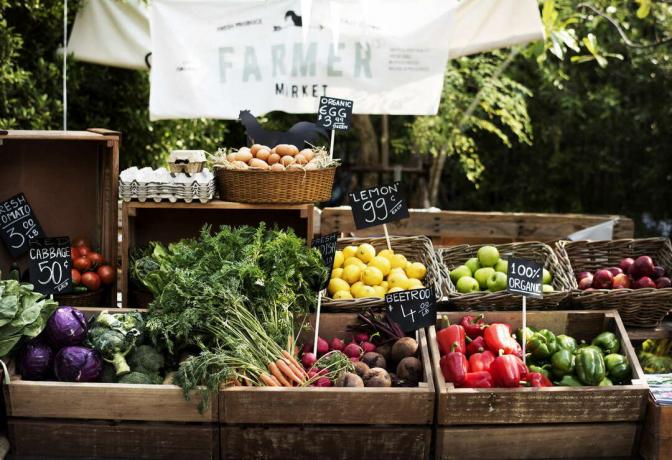
Solidarity farming is not just a way of farming and marketing agricultural products. Many proponents of this model also consider this form of agriculture to be the fairest and best. The number of supporters has been increasing rapidly for some time - in Germany as well as in Austria, Switzerland and many other countries. In this article we explain the concept of SoLaWis in more detail and introduce the communities of some German cities.
contents
- Solidarity agriculture: what is it?
- Solidarity agriculture: why does the concept exist?
- What is produced in a SoLaWi?
-
SoLaWi near me: Where are SoLaWis in your area?
- SoLaWi near Bremen
- SoLaWi near Stuttgart
- SoLaWi near Augsburg
- SoLaWi near Hanover
- SoLaWi near Cologne
- SoLaWi Leipzig and Brandis (Solidarity Field Economy Association for Food Sovereignty and Social Utopias e. V.)
- SoLaWi Frankenberg / Saxony (courtyard to the colorful cow)
- SoLaWi Berlin (Kiez & Land)
- SoLaWi Berlin, Potsdam, Halle, Leipzig (Sterngartenodyssee)
- SoLaWi Munich (Potato Combine)
- SoLaWi Hamburg (Kattendorfer Hof)
- SoLaWi Dortmund (Schulte-Tigges learning farm)
- SoLaWi Mainz
- SoLaWi Darmstadt
- SoLaWi Pforzheim
Solidarity agriculture: what is it?
SoLaWi is the abbreviation for Solidarity Agriculture. It is a community made up of producers (e.g. farmers) and consumers. The concept is based on the solidarity that is already in the name: Consumers undertake to pay monthly or annual contributions in order to reliably cover the producers' costs. In return, the producers supply them with the products of their farms.
The price that consumers pay is set annually in most SoLaWis, and the methods of setting contributions can be different. Often financially weaker members are given the opportunity to become part of the community by being co-financed through the community. In some SoLaWis it is also possible to reduce the contribution to be paid by working hours. Voluntary community work is generally welcome in almost all SoLaWis and is often even indispensable.
The products produced are distributed differently in the various communities: vegetable boxes or pick-up depots are just two options. The fixed payment of the producers results in years with low agricultural yields In return, consumers will be intercepted in years with very good yields from the excess of products involved.
Solidarity agriculture: why does the concept exist?
The SoLaWis concept bypasses the usual “detour” via retail, so that on the one hand the producers do not deal with all of them other producers have to compete on prices and consumers, on the other hand, have to pay a lower price for the products counting.
This may seem contradictory at first glance, but it is explained by the fact that conventional retailers also keep part of the price for themselves in order to make a profit. In order to maximize these profits, people often buy as cheaply as possible - the same applies of course also for wholesalers and is generally a clear one in the free market economy Action tendency.
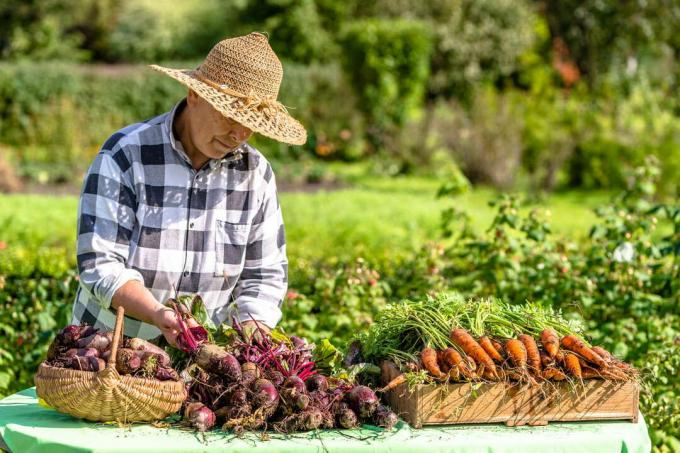
This means that the producers try to produce as cheaply as possible in order to also receive a profit from their work. A very cheap production of food is often at the expense of the environment and leads to low wages for the employees of the producers.
Solidarity agriculture should be a fairer, regional, seasonal and mostly organic alternative to going to the supermarket. It should give the producers the opportunity to produce in financial security and at the same time considerate and sustainable with the environment, the areas used and their employees to deal with.
What is produced in a SoLaWi?
Even if only one producer is involved in solidarity agriculture, the range is often very varied. A varied crop rotation protects the soil and keeps it fertile. This, too, is only possible because it does not have to be produced as cheaply as possible “at any price”. Because growing many different types of vegetables is much more labor-intensive than concentrating on one type of vegetable.
Often orchards, cider mills and livestock farming are also part of SoLaWis. This makes it possible to offer a wide range of products, from apples to eggs and good beef to zucchini.
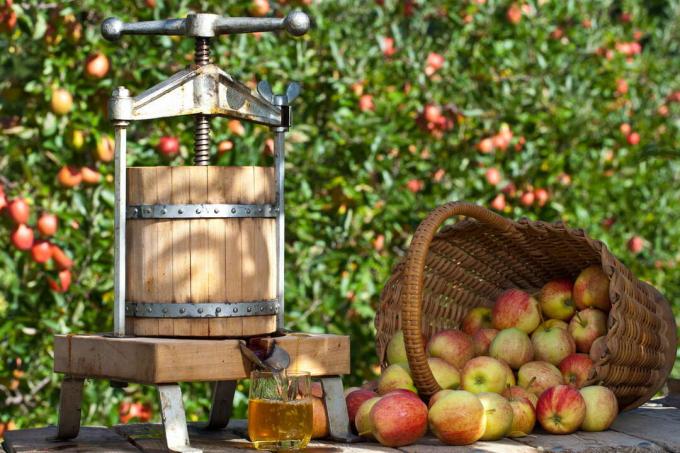
SoLaWi near me: Where are SoLaWis in your area?
If you are curious now, you will find a few interesting SoLaWis in the following. There is sure to be one in your immediate vicinity.
SoLaWi near Bremen
Of the Gardener's farm Oldendorf, about 40 kilometers north of Bremen, produces vegetables, fruits and herbs in Demeter quality as part of a SoLaWi. All products are only given to members of the community, none of the products make it into retail. The community of consumers around Bremen and Bremerhaven is supplied via weekly stocked depots. On the one hand, the weekly letter, which continuously reports on what is happening on the farm, ensures additional proximity to the producers. On the other hand, hands-on activities are held regularly so that the production of food on the farm can be experienced directly. At the annual festival, the focus is on getting to know each other, forming a community and enjoying it.
SoLaWi near Stuttgart
SoLaWi Stuttgart in cooperation with the Reyerhof Möhringen produces agricultural products organically and naturally without genetic engineering. Your vision is not limited to the purely practical: Exchange and cooperation should replace competitive thinking. For this it is necessary that vital resources such as water, soil and food as well as education and knowledge are regarded as common goods. Following this approach, SoLaWi Stuttgart offers a platform for open communication, lectures and workshops. A balanced prosperity should grow out of this attitude, which does not contradict an intact and sustainably managed ecosystem. SoLaWi Stuttgart is also looking to future generations: Doing good business today in order to be able to draw on nature's garden in the future.
SoLaWi near Augsburg
The SoLaWi Augsburg a total of four producers with many consumers around Augsburg. The initiative received the “Augsburg Future Prize” in 2017. The organization of the SoLaWi is something very special: The members are divided into “farmers” and “city managers”. While the farmers produce products for themselves and the city owners, they take care of public relations, community projects and the recruitment of new members, for example.
SoLaWi near Hanover
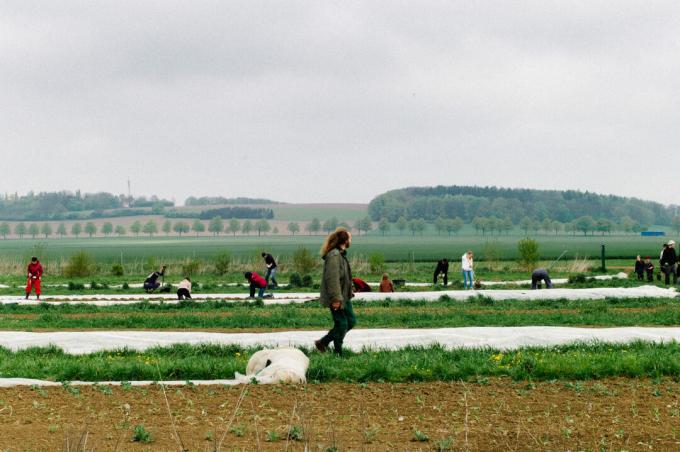
About 20 kilometers west of Hanover, the flourishes on the site of a former tree nursery SoLaWi "wild growth". In 2010 and 2011, the siblings Arne and Meike Wessel turned the site into an organic nursery restructured and since then organic vegan cultivation has been carried out here, which means: not even animal fertilizers are used here used. The operation includes open fields, four poly tunnels for warmth-loving crops and two orchards. The products produced, spread over 40 different vegetable crops throughout the year, can either be picked up directly from the farm or from depots. In the SoLaWi "Wildwuchs" cooperation is welcome, so that the management is a real community effort. The budget is discussed in detail at the annual general meeting, as is the cultivation plan, on which all employees have a say.
SoLaWi near Cologne
The still very young one is in the west of Cologne SoLaWi "Vegetable Coop", which - although it has only existed since spring 2017 - supplies 180 Cologne residents with regional, seasonal and organically grown vegetables. At this SoLaWi, the financing is very interesting: While the ongoing operation is paid through the monthly membership fees, crowdfunding, foundation funds and Funding is responsible for covering special costs if, for example, a new area of activity is opened up or a new bike is purchased for the delivering employees shall be. In addition, each member pays a deposit to the Gemüsekoop when they join, which is paid back if the member wants to leave the community. This “loan” is used to make predictable and larger purchases, such as machines or the expansion of work rooms.
Since a detailed presentation of too many SoLaWis would go beyond the scope of this article, we now present a few projects from all corners of Germany in brief:
SoLaWi Leipzig and Brandis (Solidarity field economy association for food sovereignty and social utopias e. V.)
In the SoLaWi Leipzig and Brandis there is a lot of collaborative work, learning and testing. So that all members can participate in the new knowledge, everything is reproduced on the well-structured website. An initiative that looks like fun, a thirst for knowledge and a willingness to learn.
SoLaWi Frankenberg / Saxony (Courtyard to the colorful cow)
The SoLaWi in Frankenberg / Saxony offers a wide range: You not only run an FÖJ position, but also a BuFDi position and a training position. The farm is also a member of the WWOOF association. The farm “zur Bunte Kuh” is therefore a recommendation for anyone who would like to try out the concept of solidarity farming on their own.
SoLaWi Berlin (Kiez & Country)
the SoLaWi "Kiez & Land" has networked with an organic nursery in Mecklenburg-Western Pomerania, which supplies three districts of our capital with vegetables every week (twice a month in winter).
SoLaWi Berlin, Potsdam, Halle, Leipzig (Sterngartenodyssey)
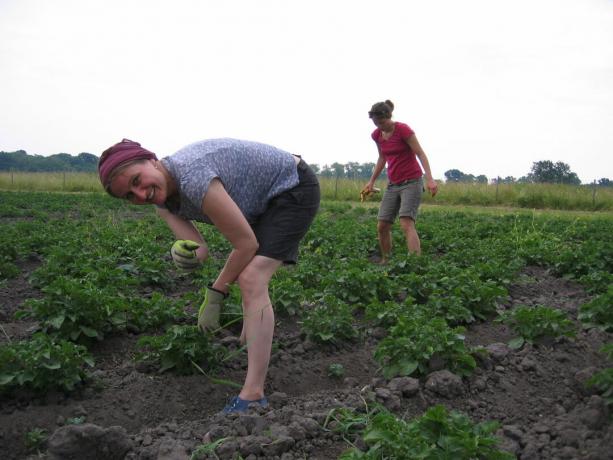
As today's consumers, we are all part of complex economic relationships that bring about social injustice and environmental degradation on a large scale. The members of the "Sterngartenodyssey" believe that it can be done better. That is why they have developed a form of cooperation that they find fair and that is based on a sustainable approach to nature. They organize joint cultivation planning, organize a large number of work assignments that teach them understanding and respect for agricultural work. The courtyards thus become places of encounter. This is where the sense of responsibility with which the members shape their project arises.
With everyone who has the courage to join the Sterngartenodyssey, a common path is taken to show that fair treatment and sustainability are wanted and feasible.
SoLaWi Munich (Potato combine)

That Potato Combine was founded by Daniel Überall and Simon Scholl. After two moves, the cooperative now has a home in the form of a former one Found a tree nursery that will be transformed into an organic vegetable farm (Naturland Fair certified) became. The site was jointly financed and with this step and in hopeful anticipation of what the The future of SoLaWi is the supply of many Munich residents with healthy, regional and seasonal vegetables secured.
SoLaWi Hamburg (Kattendorfer Hof)
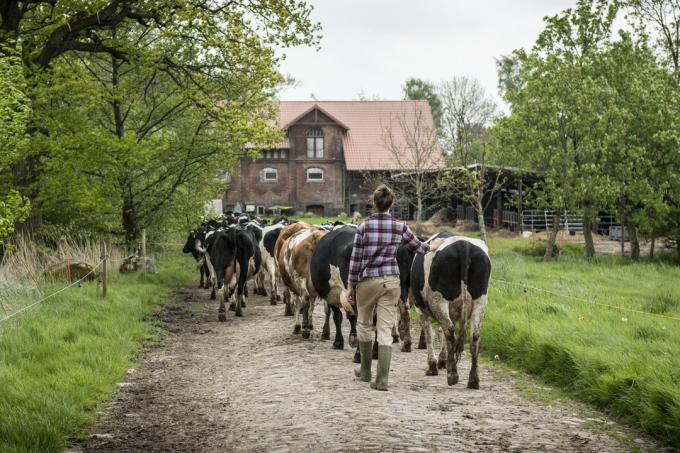
Of the Kattendorfer Hof near Hamburg has been operating according to Demeter guidelines since 1995. Here, according to the ideas of Rudolf Steiner, farming is largely carried out in cycles in order to maintain and increase the fertility of the 240 hectares under cultivation. With the help of the so-called “FoodCoops” and the farm shop, the products produced - grain, vegetables and animal products such as cheese, quark and eggs - are distributed to consumers. The "FoodCoops" organize the distribution of the products themselves and also provide Rooms are ready for storage so that the Kattendorfer Hof does not have its own for each customer Have to pack boxes.
SoLaWi Dortmund (Schulte-Tigges learning farm)
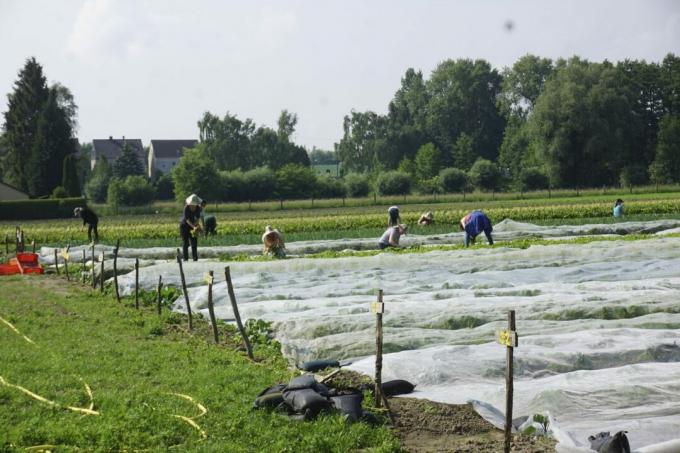
Of the Schulte-Tigges learning farm has been managed as SoLaWi since waking up from a long slumber. Since then, it has also been a “hands-on farm” for children and young people who work here and do it themselves make a playful approach to the topics of agriculture, nutrition, consumption, climate and the environment should.
SoLaWi Mainz

Catalyzed by the desire to feed yourself healthy and ecological independently of corporations the information event “The country needs new townspeople” finally developed after a two-year start-up the SoLaWi Mainz. With the help of professionally experienced and helpful gardeners, a project has now developed that is in is able to distribute 105 parts of vegetables per month and own areas, storage locations and machines supervised.
SoLaWi Darmstadt
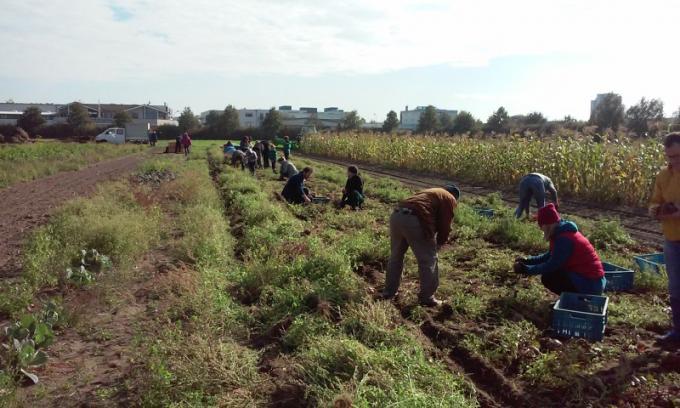
The SoLaWi Darmstadtwhich can now supply 80 members with the help of the nearby Birkenhof. In working groups, a lot is jointly set up on the basis of voluntary work. The cultivation on the Birkenhof is not affected, it is denied independently of voluntary help. But the summer festivals, public relations, looking after the depots and the website are carried out by the community on its own initiative.
SoLaWi Pforzheim
The SoLaWi Pforzheim works in cooperation with the Auenhof, on which several gardeners, social therapists and 18 employees who need assistance are employed. In this way, another social aspect is brought into the idea of solidarity-based agriculture in which every member of the community has an important place and achieves something within their means can.
If you cannot find a SoLaWi in your area in this extensive list, then take a look at the official website of solidarity agriculture stop by to find a start-up initiative or a SoLaWi for yourself.
